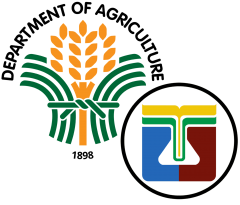Introduction
Computerization plays a very important vital role in shaping up the business process in an organization. The main purpose of the computerization is to transform the business process to functional requirements using the digitalization in an efficient manner. The signs of times where the country faces a series of nationwide lockdowns due to Covid19 pandemic presses the need to transform the organization to digitalization. It must be prioritized in order to implement the alternative work arrangement wherein employees will have to work from home and be able to access the work related files in a digital manner. The demand of the on-line meetings also emerged with the need to comply with IATF rulings following a certain number of personnel allowed to report at the office.
The Shape of Time
It was the year 2017 when a proposal for the computerization for the Laboratory Services Division was prepared and introduced to the Research and Development Committee for scrutiny and evaluation. It was not approved as there were other priorities then. But the LSD was determined to push its transformation to LIMS to improve and level up the LSD’s information management system.
It was in 2019 when the right opportunity came through the efforts and initiatives of Dr. Gina P. Nilo the Chief of the Laboratory Services Division where she proposed for the project for the National Soil Health Program. The LIMS became a part of Project 1: “Institutionalizing National Soil Monitoring and Rejuvenation Program”, where the goal is to automate the BSWM Central Laboratory including all the Regional Soils Laboratories in the country.
As part of the government’s goal to attain food security, the National Soil Health Program (NSHP) was approved last April 27, 2021 under the leadership of the Department of Agriculture – Secretary William D. Dar. Because of this, a series of meetings and planning was conducted for the preparation of the budgetary requirements and various documents needed to execute the said project.
The NSHP project also aims to enable through the Laboratory Services Division of Bureau of Soils and Water Management (BSWM) to strengthen the implementation of PD 1435 s. 1978 and DA AO 4 s. 2017 toward enhancing competence of soil laboratories in terms of quality, administrative and technical systems of the laboratories that shall analyze a wide range of parameters. The strengthening of laboratory capacities is essential to support the nutrient management recommendations, and design comprehensive agricultural production plans, for monitoring of soil health and management of chemically degraded lands.
Milestone
In May 2020, the Laboratory Services Division began to evaluate the LIMS software solutions offered in the market. A series of on-line product demonstrations for the “off-the-shelf” LIMS Software Solution has been presented and evaluated by the Laboratory Services Division under its Laboratory Information Management Section (LMIS) team. It guides the entire laboratory staff in the process of exploring the software solutions to be used for the central laboratory. Proper documentation has been done throughout the course of initial assessment.
The compounding months of 2021 will mainly focus on the procurement of LIMS Software Solutions that includes the final evaluation of the software to be used by the laboratory including its hardware requirement to be able to set-up the datacenter needed to install and deploy the LIMS.
By 2022, this will be a busy year because this will commence office renovation that would run for six months. This office renovation is crucial because it will house the datacenter needed for the hardware installation to institute the LIMS Software Solutions. During this period LIMS Team will be conducting the on-site technological readiness assessment to determine the requirements of the Regional Soils Laboratories and identify the skills set of their respective employees to determine if LIMS can be replicated to site laboratory. The data that will be produced from on-site assessment will be necessary for the strategic planning to replicate LIMS to the Regional Soils Laboratories but need to consider factors such as location, size and capacity of the laboratory.
Above all, there are many opportunities to take into consideration in order to complete the transformation of the entire Soils Laboratories to elevate to digital process. The LIMS will certainly aid in providing a better quality of service among all BSWM Customers in the near future.



